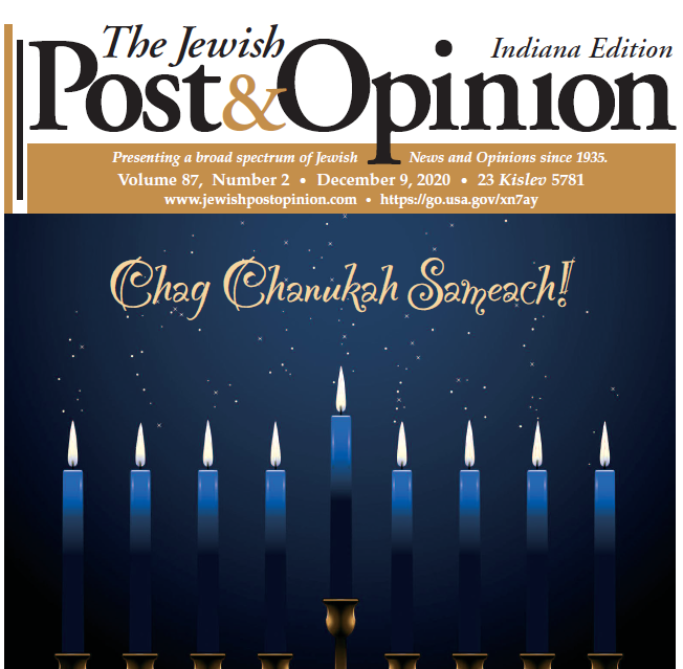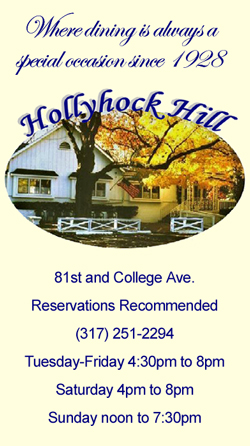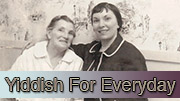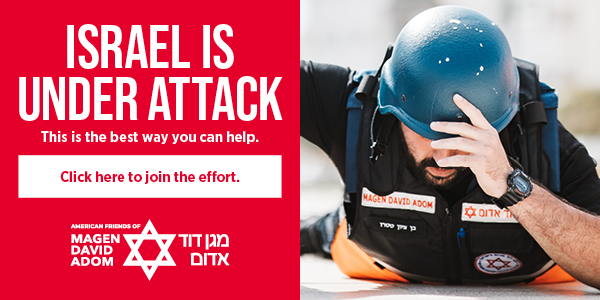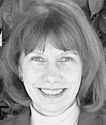
Dr. Miriam L. Zimmerman
By Dr. Miriam L. Zimmerman
This article is the 2nd in a series of four see the 1st, “Anticipating Auschwitz” at: jewishpostopinion.com/?p=3764) about the 75th anniversary celebration of the liberation of Auschwitz on Jan. 27, 2020, attended by this author. The Auschwitz Museum currently has a three-hour video of the entire commemoration ceremony posted on its English website, http://auschwitz.org/en/.
Israel as a nation remembers the Holocaust on Yom Hashoah Ve-Hagevurah, the “Day of (Remembrance of) the Holocaust and the Heroism.” “Yom HaShoah,” as it is often called, marks the anniversary of the Warsaw Ghetto Uprising on the 27th of the Hebrew month of Nisan. Israel’s Knesset passed the resolution to enact this holiday on April 12, 1951.
The General Assembly of the United Nations adopted resolution A/RES/60/7 in November 2005, which declared that the United Nations would designate January 27 as an annual International Day of Holocaust Commemoration. The date marks the anniversary of the liberation of the Auschwitz death camp by Soviet troops in 1945.
By linking Holocaust remembrance to the Warsaw Ghetto Uprising, Israel and Jews worldwide emphasize the heroism of the victims. By linking the commemoration to the Auschwitz extermination camp, the international observance emphasizes their victimage. Each observance makes an implicit political statement.
Instead of observing International Holocaust Remembrance Day, Israel held its Fifth World Holocaust Forum beginning January 23, 2020 at Warsaw Ghetto Square in Yad Vashem, Jerusalem. Yad Vashem, as most readers know, is the Israeli institution dedicated to Holocaust research, education, archive, and commemoration.
According to the Yad Vashem website, “At the invitation of the President of the State of Israel, some 50 members of royalty, presidents, prime ministers and parliamentary leaders from Europe, North America and Australia attended the Fifth World Holocaust Forum titled, ‘Remembering the Holocaust, Fighting Antisemitism’.”
If you were a world leader, where would you rather go for a Holocaust commemoration in the middle of winter – frigid Poland or balmy Jerusalem? January is Poland’s coldest and snowiest month, with average high temperatures 33.8°F and average low, 23°F. Jerusalem has daily high temperatures around 54°F, rarely falling below 45°F or exceeding 63°F.
To see how it played out, I compared the list of State Delegations to Poland’s 75th anniversary of the liberation of Auschwitz to the Yad Vashem guests at the Holocaust Forum. For example, the United States sent Vice President Mike Pence to Jerusalem while Secretary of the Treasury Steve Mnuchin got stuck with Poland. Did Pence pull rank to go to the milder climate?
His Excellency (H.E.) Mr. Armen Sarkissian, president of Armenia, journeyed to Jerusalem while Ambassador Samuel Mkrtchian of Armenia made his pilgrimage to Poland. Prince Charles went to Israel; his wife Camilla, Duchess of Cornwall, to Poland. Can we make conclusions about who holds the power in this power couple?
But I do not wish to go down the alphabet of dignitaries who attended each event. To summarize: out of the 47 dignitaries who attended the Jerusalem Forum, 28 were presidents, one vice president, five kings or princes, and three prime ministers.
In Poland, 54 dignitaries attended, including 11 presidents; 10 prime ministers; one deputy prime minister; and four royals, consisting of two kings, one crown prince, and one crown princess. Thus, more top officials paid their respects to victims of the Holocaust in Israel, where many Holocaust survivors and descendants live; rather than in Poland, whose 3.1 million Jews were reduced to a fraction. Today, “Fewer than 10,000 Jews live in Poland, a country once known as the center of European Jewish life,” according to the World Jewish Congress.
The liberation ceremony took place in Auschwitz II, Birkenau. A heated tent that took three months to erect over the infamous “Gate of Death” of Birkenau displayed huge jumbotron screens to give visibility to speakers.
I am grateful to Dr. Alex Kor for describing to me in a personal phone call the politicization of the 75th anniversary commemoration. Alex, representing his mother, Mengele twin Eva Kor, of blessed memory, attended a dinner for survivors and their families the night before the commemoration ceremony. He learned about some of the political machinations going on behind the scenes.
Three of the presidents pulled out of the Israeli forum, reminding me of a middle school party where attendance signifies prestige, depending on who attends and who does not. “If Pat goes, then I’m not going;” or, vice versa.
H.E. Mr. President Andrzej Duda of Poland did not attend the Israeli forum, allegedly because he was not allowed to speak. He evidently wanted to refute some of the assertions H.E. Mr. Vladimir Putin, president of Russia, had made at a prior international event, unrelated to the Holocaust. Israel clarified that only the current leaders of the Allied nations which liberated Europe from the Nazis: U.S., U.K., France, and Russia were invited to speak. Despite this explanation, President Duda pulled out of the forum and spoke in Auschwitz on January 27, welcoming survivors, their families, and dignitaries in the Birkenau tent.
H.E. Mr. President Gitanas Nauseda of Lithuania, allegedly also decided to opt out of Yad Vashem for Auschwitz, in solidarity with President Duda. Independent of either of these presidents, H.E. Mr. President Volodymyr Zelensky of Ukraine followed suit. Presumably, President Zelensky protested Putin’s speech by doing so. It is helpful to remember that Russia and Ukraine currently are at war with each other.
I use the words “allegedly,” “presumably,” “no doubt,” and “evidently,” because, like a preteen preparing for a sock hop, who can know the preadolescent mind? Middle school synergy, “If she’s going, I’m not going.” For that is the mentality of these world leaders as exhibited by their behavior.
If our president spoke at Auschwitz, with President Zelensky in view, no doubt he would have made it about his “perfect phone call” to that leader in the prior year. In Jerusalem, both Vice President Mike Pence and Israeli President Benjamin Netanyahu shamefully used the event to complain about Iran, comparing that country’s antisemitism to that of Nazi Germany.
H.E. Mr. President Frank-Walter Steinmeier, president of Germany, attended both events; one of the few dignitaries able to speak from the perpetrator’s point of view. His eloquence in Jerusalem clearly placed the blame on the German people; his words infused with humility and guilt.
“Those who murdered, those who planned and helped in the murdering, the many who silently toed the line: They were Germans. The industrial mass murder of six million Jews, the worst crime in the history of humanity, it was committed by my countrymen. The terrible war, which cost far more than 50 million lives, it originated from my country.
“75 years after the liberation of Auschwitz, I stand before you all as President of Germany – I stand here laden with the heavy, historical burden of guilt.” President Steinmeier concluded his talk by quoting from a survivor of Auschwitz.
“‘Who knows if we will ever hear again the magical sound of life? Who knows if we can weave ourselves into eternity – who knows?’ Salmen Gradowski wrote these lines in Auschwitz and buried them in a tin can under a crematorium.” President Steinmeier began and ended his talk by reciting in Hebrew, the Shehecheyanu prayer, “Blessed be the Lord for enabling me to be here at this day.” For the complete text of President Steinmeier’s speech, browse to: bundespraesident.de/SharedDocs/Reden/EN/Frank-Walter-Steinmeier/Reden/2020/01/200123-World-Holocaust-Forum-Yad-Vashem.html.
In my opinion, President Steinmeier gave the most appropriate speech, acknowledging guilt, and invoking the memory of survivors. Unlike Poland, which passed a law in 2018 criminalizing, “perceived attacks on Polish actions during World War II. The law, which was recently ratified by the parliament in Warsaw and which President Andrzej Duda announced he will sign, threatens up to three years imprisonment of anyone who ‘publicly and untruthfully assigns responsibility or co-responsibility to the Polish Nation or the Polish State for Nazi crimes,’” according to The Atlantic online, Feb. 6, 2018.
Denial is always the last stage of genocide. President Duda missed the opportunity in Auschwitz to clarify the record as to Polish complicity in the Holocaust.
Holocaust commemoration should be about the survivors; politicians should be seen and not heard. Politics should be replaced by lessons learned from the Holocaust, with a prescription for the future, free of hatred, racism, and xenophobia. We denigrate the memory of victims and the sacred resting place of their remains, scattered by the winds over Auschwitz from 1941 to 1945, when we reference current petty politics. When that happens, the commemoration exploits the heroism and suffering of those lost and of those who survived. It is now about the egos and agendas of current heads of state.
These world leaders could have demonstrated a vision of how the world could work together to create peace and prosperity for all, resulting in a world with no more hatred, no more death camps, and no more genocides. Unfortunately, their collective words and deeds fell short of any such a vision.
Dr. Zimmerman is professor emerita at Notre Dame de Namur University (NDNU) in Belmont, Calif., where she continues to teach the Holocaust course. She can be reached at mzimmerman@ndnu.edu. Read Dr. Zimmerman’s coverage of the 50th anniversary of the liberation of Auschwitz in 1995 at this link: jewishpostopinion.com/?p=3699
